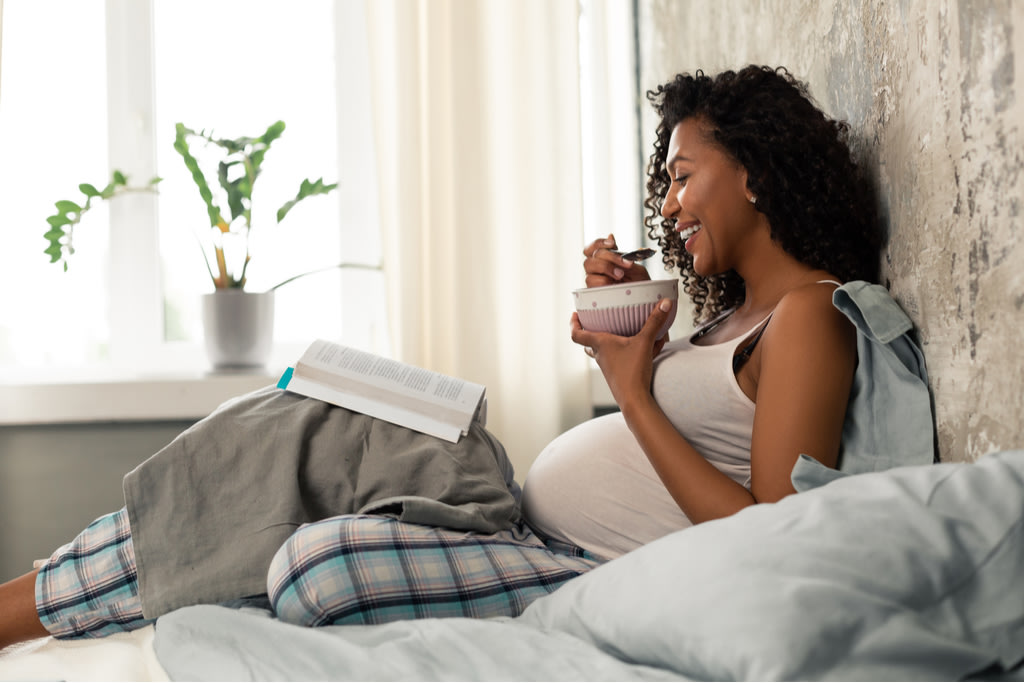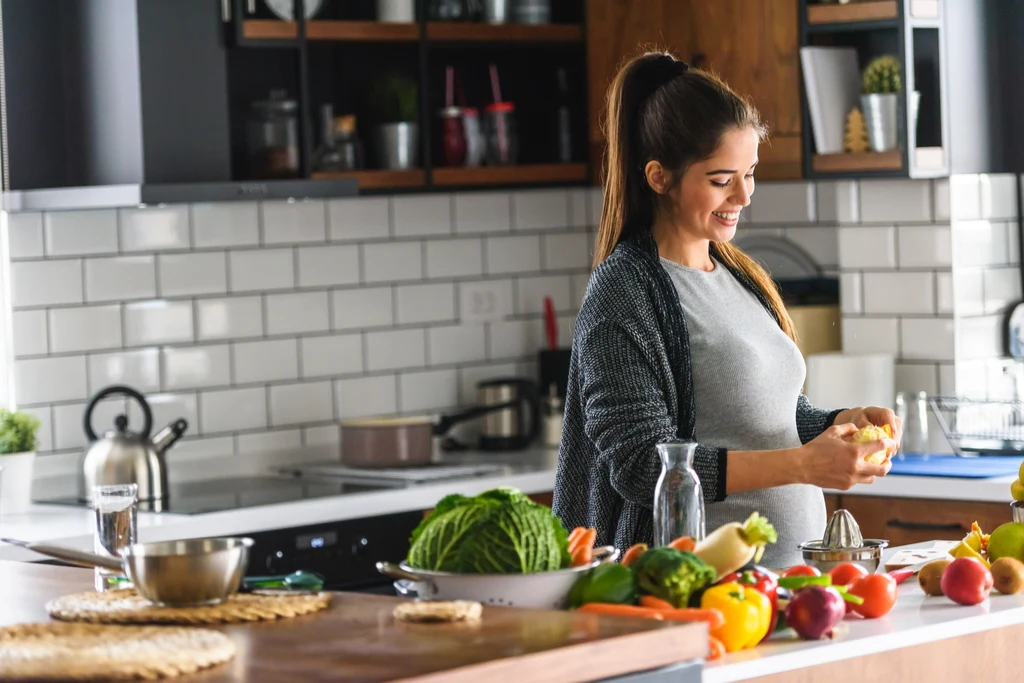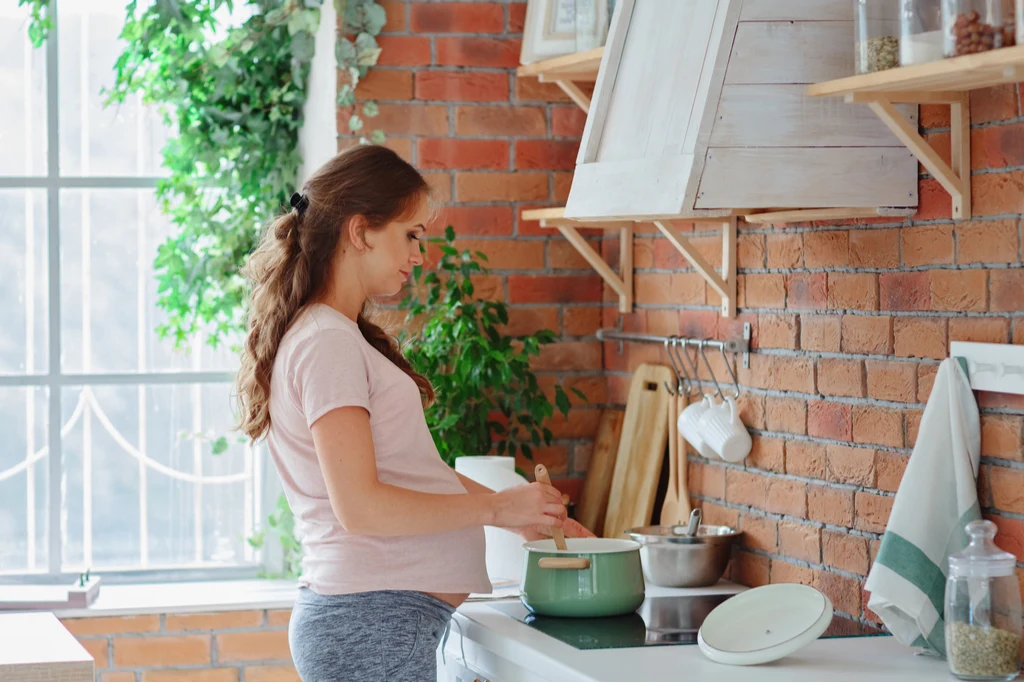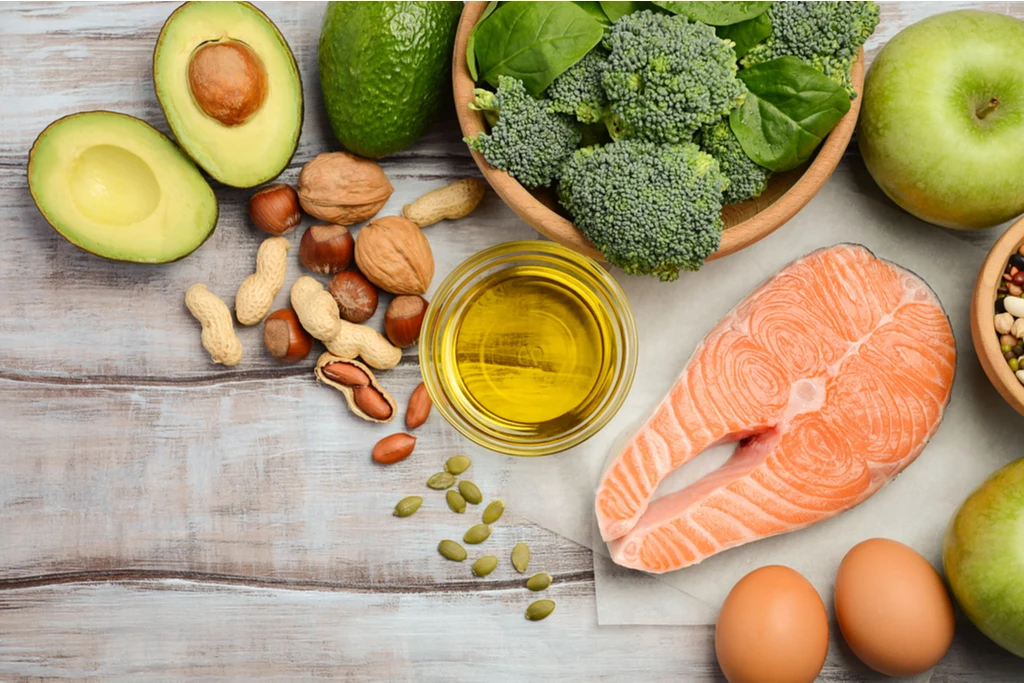Good Foods To Eat When You’re Expecting A Baby

July 27, 2022

During pregnancy, it’s normal to have all sorts of questions (um, where is the nearest toilet?), and something that’s often at the forefront of a woman’s mind is what foods to eat or what nutrients are important for a healthy pregnancy and baby.
Mayo Clinic explains that the basic principles of healthy eating remain the same for nutrition during pregnancy. Of course, it’s likely you’ll feel more hungry than usual and you should honour those hunger cues, but for the most part, focus on eating whole foods, with a diet full of plenty of fruit, vegetables, protein, whole grains and healthy fats.
In saying that, there are a few nutrients that are particularly important during pregnancy and knowing which foods pack the biggest nutritional punch can help when it comes to meal planning!
Can treats be part of a healthy pregnancy? Absolutely! Whether you’re pregnant or not, the occasional treat isn’t anything to feel guilty about (and you may experience some strong cravings or food aversions during pregnancy), so just do your best to have three nutritious meals, listen to your body, and drink plenty of water each day.
Here are some of the most important nutrients and great food sources to get them from.

Foods high in folate and folic acid
Iron is essential for producing haemoglobin - the protein that transports oxygen around your body and to the baby. According to a 2014 research article, a woman's blood volume increases by about 45% during pregnancy. Whoa, the body is amazing!
It can be hard to get this amount of folate every day from food alone, which is why many women choose or are advised to take a folic acid supplement when they are trying to conceive and during pregnancy, so check with your healthcare professional for their advice.
Foods high in iron
Iron is essential for producing haemoglobin - the protein that transports oxygen around your body and to the baby. According to a 2014 research article, a woman's blood volume increases by about 45% during pregnancy. Whoa, the body is amazing!
The American College of Obstetricians and Gynecologists says a pregnant woman needs 27 mg per day, compared to 18 mg for a woman who isn’t pregnant. Iron deficiency or anemia during pregnancy can increase your risk of infection, fatigue, premature birth, postpartum depression, low birth weight or other complications.
If animal products are part of your diet, red meat and poultry are both great sources of iron. Iron in animal protein also tends to be more easily absorbed by the body, so if you’re vegan, vegetarian, flexitarian or simply don’t consume much meat, try to eat plenty of beans, tofu, nuts, green vegetables or other fortified foods.
According to Harvard Public School of Health, vitamin C can also increase your body’s absorption of non-heme iron - the type found in plant foods such as leafy greens If you’re eating iron-rich plant foods, it can help to pair them with with foods high in vitamin C, such as tomatoes, citrus or strawberries.

Foods high in calcium
Calcium is essential for building strong bones, teeth and muscles, as well as helping to promote a healthy nervous and circulatory system. Dairy is one of the best sources of calcium if you can tolerate lactose, but broccoli, kale, nuts and seeds are also good sources, as are fortified cereals and juices.
If you enjoy yoghurt, it can also be a good source of probiotics for your digestive and gut health! Just remember to always choose pasteurised dairy products when pregnant to remove harmful bacteria.
Foods high in protein
Just like you need protein for muscle growth and maintenance, so does your baby! The brain and heart are also muscles, so eating enough protein is important.
Include a source of protein in every meal, whether that be lean meat, fish, eggs, or a plant-based source like tofu, tempeh, beans, lentils or quinoa. The great thing about foods high in protein is that they are often high in other nutrients like iron and calcium, too!
If you’re following a vegan or vegetarian diet while pregnant, it may be worth tracking your daily protein intake to make sure you’re eating enough. The University of California suggests a minimum of 60g of protein per day when pregnant, while Mayo Clinic recommends 71g per day, and the American Pregnancy Association’s guidelines are between 75-100g.
Harvard Health and research published in the Journal of the American College of Nutrition have both pointed to the way a higher protein diet can increase satiety, which can help a lot during pregnancy when you’re feeling more hungry!

Foods high in omega 3s and healthy fats
DHA omega 3 fatty acids play an important role in the brain and eye development of your baby. They also support the absorption of other nutrients such as vitamins A and E. To get your daily intake, eat foods such as cooked fatty fish (like salmon), walnuts or flax or chia seeds.
For healthy fats in general, nuts, seeds, eggs and avocado are a great addition to your diet. These are all foods with a big nutrient hit!
Foods high in vitamin D
This sunshine vitamin plays an important role in bone and teeth strength. Try to get some sunshine on your skin each day, or include food sources like cooked fatty fish or fortified products.
Foods high in fibre
Fibre keeps you full and keeps things moving smoothly in the digestion and bathroom department, too. If you’re eating plenty of fruits, vegetables and whole grains, getting your fibre intake will be easy. Keeping your fluids up will help to keep you regular, too!
Foods high in iodine
Iodine is important for your thyroid hormones and how your body uses energy. Iodised salt and fortified products are good sources (check the label), as are dairy, eggs and cooked fish.
Eat the rainbow
Beyond these nutrients, eating a colourful array of fruits and vegetables each day will ensure you’re getting a range of nutrients, fibre and plenty of energy for the health of you and your baby.

Hydration
Keep your fluids up by drinking 8-12 cups of water each day, as recommended by the American College of Obstetricians and Gynecologists.
Staying hydrated will help support digestion and prevent constipation, as well as delivering nutrients to your baby, supporting the significant increase in blood volume, making healthy new cells and the formation of amniotic fluid around the fetus. It can also help with nausea and any morning sickness.
Remember, needing to pee a lot when you’re pregnant is often due to the position of the baby in relation to your bladder, as opposed to drinking too much water, so keep a bottle of water on hand to ensure you’re staying hydrated. Your pee should be pale yellow or clear, so drink up if it’s darker in colour.
What about prenatal supplements?
Everyone’s body, genetics and pregnancy are unique, so it’s best to consult with your healthcare professional if you’re curious about whether supplements are right for you. For example, taking a supplement with iron wouldn’t be a good idea for someone who has very high iron, but would be essential for someone who is deficient.
If at any point during your pregnancy you are worried about your vitamin levels or specific nutrients, consult your doctor for advice or tests.
Eating a nourishing and balanced diet is a great way to set you and your baby up for a healthy pregnancy. Know what nutrients are important, how to get them and which foods you enjoy the most. (And be prepared for your preferences and food cravings to take some swings, too!)
Disclaimer: Although exercise during and after pregnancy has been associated with multiple health benefits, you should consult with and obtain permission from your physician or other health care provider before starting this or any other fitness program to determine if it is right for you, especially while pregnant and in the months following your pregnancy. Not all exercise is suitable for everyone or every pregnancy and exercises, including those contained in this article, may result in injury. Do not start this fitness program if your physician or health care provider advises against it. This article is for informational purposes only. Any instruction, information, or guidance contained in this article is not a substitute for medical advice, consultation, and/or medical treatment from your doctor or healthcare provider. Do not delay seeking medical advice, disregard medical advice, or discontinue medical treatment because of any instruction, information or guidance contained in this article. You are responsible for your own safety and are participating in this fitness activity at your own risk. Start slowly and do not exceed the exercise recommended by your physician or health care provider. If you experience faintness, dizziness, pain, discomfort, bleeding, or shortness of breath at any time while exercising, stop immediately and seek medical advice.

A more empowered you starts with Sweat, and our editorial team is here to bring you the latest fitness tips, trainer recommendations, wellbeing news, nutritional advice, nourishing recipes and free workouts.
* Disclaimer: This blog post is not intended to replace the advice of a medical professional. The above information should not be used to diagnose, treat, or prevent any disease or medical condition. Please consult your doctor before making any changes to your diet, sleep methods, daily activity, or fitness routine. Sweat assumes no responsibility for any personal injury or damage sustained by any recommendations, opinions, or advice given in this article.
Nutrition